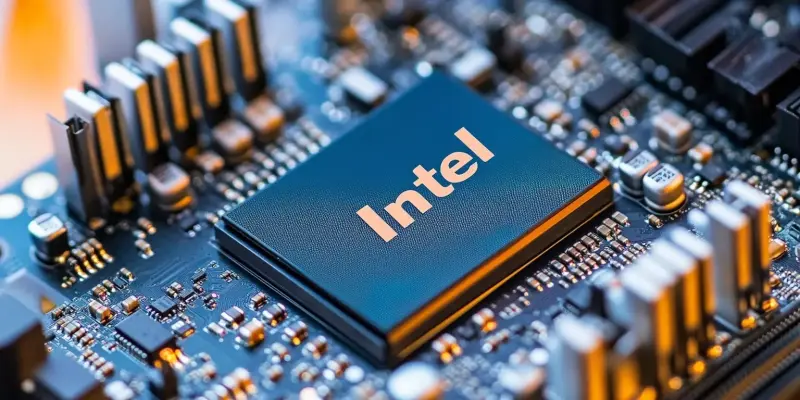The computing giant Intel is making a significant push into the budget GPU market with its upcoming Arc B570 and B580 GPUs, which represent a notable shift in focus towards gaming hardware. By offering performance that rivals more expensive counterparts at a lower price point, Intel aims to disrupt the long-standing duopoly of Nvidia and AMD in the graphics processing arena. Early benchmarks suggest the Arc B570 is only 12% slower than the higher-priced Arc B580, indicating strong value for budget-conscious gamers seeking 1080p gaming capability.
Competitive Benchmarks and Pricing
Performance and Cost Effectiveness
According to preliminary benchmarks, Intel’s Arc B570 GPU has shown a competitive edge, boasting an 86,718 score in the OpenCL API benchmark. This figure is relatively close to the Arc B580, which scores 98,343. Priced at $219 compared to the B580’s $249, the B570 offers a highly competitive option for those mindful of their budget yet unwilling to compromise significantly on performance. This 12% performance gap between the two models indicates Intel’s strategic pricing could attract gamers looking to maximize their investment in new hardware.
Importantly, Intel’s pricing strategy undercuts the competition from Nvidia and AMD, both of whom have traditionally dominated the budget GPU space. Nvidia’s lower-tier offerings, as well as AMD’s consistent pursuit of being the more affordable alternative, face a new contender that is aggressive in both pricing and technology advancements. The B570 and B580 aren’t just about numbers on a benchmark—they are about delivering real-world performance enhancements. Gamers have grown to appreciate not just the raw power but also the additional technologies and software support these cards bring.
Technological Advancements
Intel’s commitment to gaming is further underscored by the development of its XeSS upscaling technology, a formidable alternative to Nvidia’s DLSS and AMD’s FSR. XeSS aims to offer superior image quality and performance by improving the efficiency of rendering graphics, especially important in fast-paced gaming environments. This means gamers can expect smoother gameplay and better visuals without the need for top-tier GPUs. These advancements make Intel’s GPUs a compelling choice, providing options that don’t sacrifice technological benefits for a lower price.
Furthermore, the introduction of Intel’s Lunar Lake processors enhances handheld gaming PCs, like the MSI Claw 8 AI+, delivering high settings and ray tracing capabilities in demanding games such as Cyberpunk 2077. With these combined technologies, Intel is making a strong case for its place in the gaming hardware market. Consumers are taking notice of how Intel leverages its extensive industry experience to create products that are not just competitive but also innovative.
Intel’s Strategic Position
Market Disruption and Challenges
Intel’s foray into the GPU market with the Arc series represents more than just adding another product to its lineup; it signifies a calculated maneuver to capture a significant share of the budget segment. Traditionally, Nvidia and AMD have enjoyed dominance with little serious competition. However, Intel’s renewed focus and technological prowess mark a paradigm shift. This movement is not without challenges, as Intel has yet to match the high-end GPU offerings of its more established competitors. Nevertheless, the introduction of budget-conscious and performance-oriented GPUs like the B570 and B580 shows Intel’s determination to make a mark.
The overall reception of Intel’s GPUs has been positive, but the journey is fraught with hurdles. Driver issues have been a notable drawback, impacting the overall user experience despite the robust hardware performance. These kinks need ironing out if Intel wishes to erode the brand loyalty Nvidia and AMD have cultivated over years. Nonetheless, Intel’s strategic pricing and constant technological advancements keep it in the competitive play. The Arc B580’s strong performance in areas like content creation and gaming indicates a promising future, assuming Intel continues to address software optimization and support.
Future Implications
Intel, a leading authority in computing technology, is making a notable move into the budget-friendly GPU market with its upcoming Arc B570 and B580 graphics cards. These new offerings signal a significant shift toward gaming hardware, targeting gamers who want quality performance without breaking the bank. By providing high-caliber capabilities that rival those of more expensive models at a reduced price, Intel is poised to challenge the longstanding dominance of Nvidia and AMD in the graphics processing sector.
Initial performance tests reveal that the Arc B570 is only about 12% slower than the higher-end Arc B580, which showcases the exceptional value it offers. This makes the Arc B570 a particularly attractive option for budget-conscious gamers who are looking to enjoy smooth 1080p gaming experiences without investing in pricier alternatives. Intel’s strategic foray into the budget GPU market with these new models highlights their dedication to expanding their reach in the gaming industry, offering consumers more choices and heating up the competition in this space.

